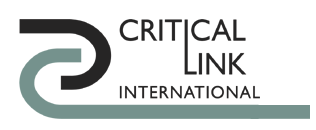Industry Update: NAATI CEO Mark Painting, and two members of the NAATI staff, Nora Sautter and Maho Fukuno, recently travelled to Japan to attend the Critical Link International 9 Conference in Tokyo. The conference was held over three days from 14 – 16 July 2019. This international conference was attended by 161 participants from 17 countries. Among them, eleven delegates were from Australia.
Community interpreting is a vital service for communities with groups of ethnic minorities. Accessing quality community interpreting enables people to connect with services where, due to the language barrier, this would otherwise be difficult.
The conference theme, Community Interpreting in the Age of Artificial Intelligence, was explored from different regional as well as conceptual angles.
One of the main concerns for interpreters is how developments in this technology will impact on their professional role. Some voices outside the T & I industry have said that interpreters could be replaced by AI. The counter-argument is that AI will assist interpreters in their work rather than compete with them. Interpreters, as human beings, have the ability to make judgement about appropriate terms and expressions. Humans have flexibility and the ability to respond to non-verbal communication, which helps them to work with empathy and in context, at a level to which machines cannot.

The conference was an opportunity for NAATI to share experiences with like-minded organisations and practitioners, and to learn about where the interpreting profession and certification systems, are heading in other countries. Mark Painting presented NAATI’s new certification system. It is clear that NAATI is a leader in the industry, with our recent initiation of a robust and practical certification system.
The NAATI certification system was developed using empirical research and practitioner feedback. NAATI engaged professionals to guide the development of testing and assessment methodologies, and the design work was underpinned by a detailed survey of more that 400 practitioners.
A universal,national system of certification is unique. In some countries, for example, the U.S., certification is mainly awarded at State level and only valid in the state it is issued in. Many certification systems focus on a limited number of languages, usually less than ten, and often on only one aspect of interpreting, such as health or legal interpreting. Practitioners in other languages, and consumers, are not catered for and miss out on services.
NAATI hopes that by sharing experiences and insights learned in developing and implementing the certification system, we can help other countries to confidently raise the standard of community interpreting worldwide.
